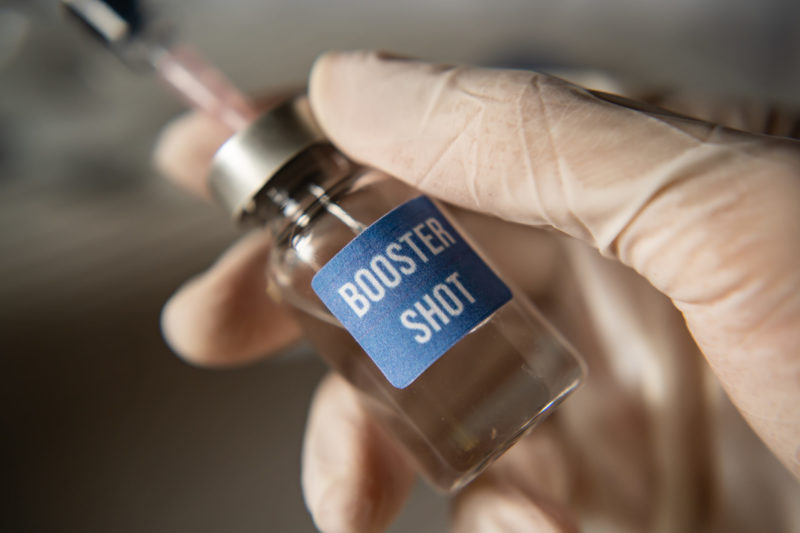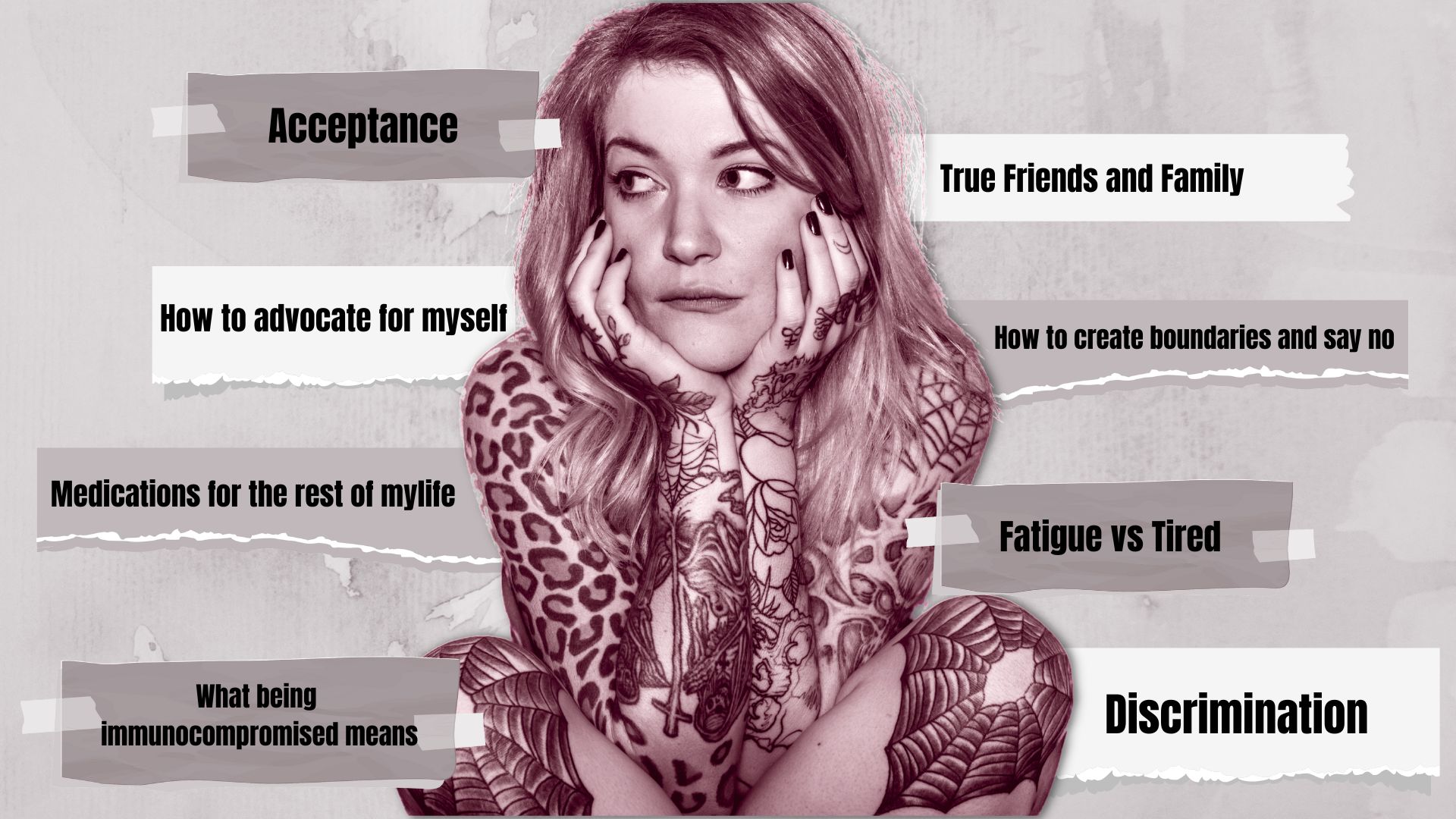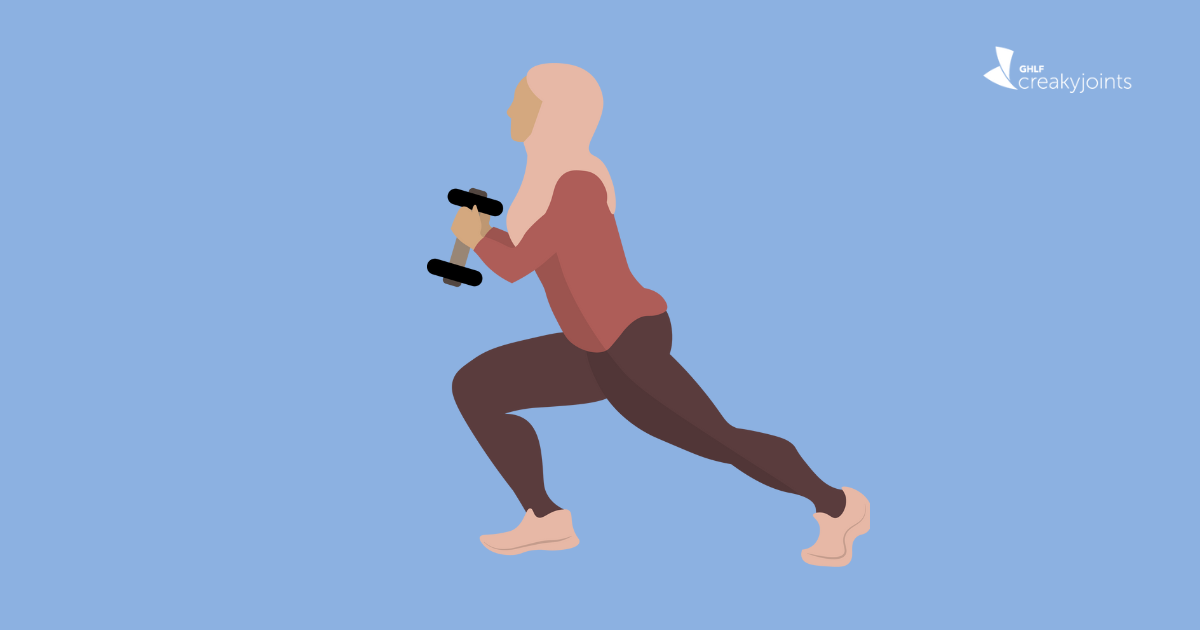Learn more about our FREE COVID-19 Patient Support Program for chronic illness patients and their loved ones.
This has been reviewed and updated as of July 26, 2021.
There’s been quite a bit of discussion about the potential need for COVID-19 booster shots in the media and medical community in recent weeks. This may be of particular concern to you if you’re immunocompromised and worried that you may not have garnered a full immune response against COVID-19 from the vaccine.
As of now, booster shots are not available for immunocompromised people (or anyone) in the U.S., though this may be changing soon. At a recent advisory committee meeting to the U.S. Centers for Disease Control and Prevention, several experts recommended that some people who are very immunocompromised should get a third COVID-19 vaccine dose, noting that there is emerging data that a third dose could boost the immune response in people who did not have a strong response to the first two doses.
The New York Times reported last week that “Biden administration health officials increasingly think that vulnerable populations will need booster shots even as research continues into how long the coronavirus vaccines remain effective.”
Israel recently began administering booster shots of the Pfizer COVID-19 to those with compromised immune systems. It was the first country in the world to do so. People with pre-existing medical conditions (such as people who have recently undergone an organ transplant) can receive a third shot of the vaccine, reports CNBC. France similarly started encouraging the same for transplant recipients, people on strong immunosuppressant medication, and dialysis patients in April of this year, according to USA Today.
These booster shots involve receiving an extra dose of the currently available mRNA vaccine. They are not new formulations of the vaccine created to protect against a particular variant (though those are also currently being studied).
Understanding Types of Booster Shots for COVID-19 Vaccine
This may be one reason there’s so much confusion around the use of booster shots — there are different reasons booster shots may be needed.
You can think of booster shots in these three categories, says Dorry Segev, MD, PhD, a transplant surgeon and researcher at Johns Hopkins Medicine.
- Immunity boosters: These would aim to boost the protection of immunocompromised individuals who may have never gotten full immunity from the vaccine. In Israel and France, this involves an extra dose of a vaccine.
- Variant boosters: These would be formulated to boost the “repertoire” of your immune response by protecting you against future variants that were not included in the original vaccines.
- Durability boosters: These would extend the amount of time you’re protected. For example, if experts find that a vaccine’s effectiveness starts decreasing after a certain amount of time, you would need a durability booster at that point.
“Right now, there is no evidence of a need for variant boosters or durability boosters,” says Dr. Segev. “The vaccines are impressively durable.”
As far as immunity boosters go, existing data from other types of vaccines suggests that immunocompromised individuals may benefit from an extra dose.
“There is data with hepatitis B and influenza vaccinations that boosters can be effective in this type of scenario,” says Alfred Kim, MD, PhD, Associate Professor of Medicine at Washington University School of Medicine in St. Louis, Missouri. “The data that has been generated — largely outside of rheumatic disease and mostly within the transplant world — suggests that it would be something that is reasonable to do.”
Experts anticipate seeing similar results in inflammatory and rheumatic disease patients. This means that if they did mount a poor immune response to the COVID-19 vaccine, a booster would likely be effective and safe, adds Dr. Kim.
Is the COVID-19 Vaccine Less Effective in Immunocompromised People?
The short answer: in some cases, yes. But this is a complicated question to answer, because:
- Studies done so far are generally measuring specific aspects of immunity (such as antibody levels), but not whether people who are immunocompromised are getting infected with COVID-19 more often or having more severe disease.
- Immunosuppressant medications are not a single class with a single impact on immunity. Based on initial data, certain medications have a greater impact on measures of immune response than others.
- Doctors don’t yet know what levels of immune response correlate with adequate COVID-19 protection, which will make recommending booster shots to individual people challenging.
Here’s what one recent study found, for example. Compared to healthy health care workers, seropositivity (a measure of antibody levels) was significantly lower after the COVID-19 vaccine in immunocompromised patients with a solid organ transplant, autoimmune conditions, or cancer in a June 2021 preprint study of nearly 600 participants posted on medRxiv. (MedRxiv is a preprint server, which means the research has not yet been peer-reviewed.)
While 98.1 percent of healthy health care workers developed antibodies, only 37.2 percent of solid organ transplant patients did. Meanwhile, just 54.7 percent of patients with hematological malignancies (blood, bone marrow, or lymph node cancers), 83.8 percent of autoimmune patients, and 82.4 percent of solid tumor patients developed autoantibodies.
“Our findings demonstrate the heterogeneity of the humoral immune response to COVID-19 vaccines based on underlying immunosuppressive condition and highlight an urgent need to optimize and individualize COVID-19 prevention in these patients,” note the researchers.
These are the patients who may potentially need immunity boosters, or an extra shot of the vaccine.
“Immunity boosters would be for people like transplant patients, autoimmune patients, and cancer patients who got vaccinated — got the full regimen — and did not have an adequate immune response,” says Dr. Segev.
How Effective Is the COVID-19 Vaccine Against the Delta Variant?
The Pfizer vaccine is 88 percent effective in preventing symptomatic disease from the Delta variant, per a May 2021 preprint study posted on medRxiv. It is 96 percent effective in preventing hospitalization from Delta, reported a June 2021 preprint study from Public Health England. Moderna and Johnson & Johnson have also published research showing their vaccines are effective against the coronavirus Delta variant.
It’s still unclear if the Delta variant causes more breakthrough cases in vaccinated people, per Yale Medicine. Pfizer is developing a booster shot against the Delta variant that will be tested in clinical trials in August. However, major health organizations don’t see a need for a reformulated vaccine yet.
The U.S. Food and Drug Administration (FDA) and U.S. Centers for Disease Control and Prevention (CDC) released a joint statement noting that people who are fully vaccinated are protected from severe disease and death from COVID-19, including from currently circulating variants such as Delta.
The statement notes that booster shots are not needed at this time but that the FDA, CDC, and National Institutes of Health (NIH) are prepared for booster doses if the science suggests they are needed, which will take into account laboratory data, clinical trial data, and cohort data. This may include data collected from pharmaceutical companies like Pfizer, but won’t rely on that data exclusively.
When Will Booster Shots Be Available in the United States?
The reason Israel and France are allowing third doses of the vaccine for immunocompromised patients but the United States is not comes down to the EUA — the emergency use authorization granted to vaccines and other medical countermeasures during public health emergencies.
“We have a tighter regulatory environment, and the vaccines were approved in the United States through Emergency Use Authorization,” says Dr. Segev. “In an EUA, you have to specify the dosing regimen. The only thing that was tested at the time the EUAs were approved was a two-dose regimen [for mRNA vaccines].” The Johnson & Johnson COVID-19 vaccine was authorized for a one-dose regimen.
When it comes to booster shots specifically for immunocompromised people in the United States, there are two scenarios to consider.
First, enough data could become available for a new EUA or an extension of an EUA that would allow booster doses for immunocompromised patients. There have been multiple studies done over the past few months that suggest that certain immunosuppressant medications — such as rituximab, methotrexate, and corticosteroids — are associated with a lower immune response to the vaccine. However, experts still don’t know whether this translates to a greater risk of COVID-19 infection or severe disease.
Second, the COVID-19 vaccines could receive official FDA approval, which means they are no longer approved only for emergency use. This would allow doctors to prescribe them in “off-label” ways. “I would suspect that it’s much more likely to be the second case,” says Dr. Segev.
That means your doctor could recommend you get an extra dose of the vaccine if you’re immunocompromised and may not have garnered a full immune response. (It’s worth noting that this may involve some additional prior authorizations or could come at an extra cost for the patient.)
“The requests for full approvals have already been made to the FDA,” adds Dr. Segev. “As soon as one of the vaccines gets full approval, the medical community will be able to decide when to use that off-label for immunity boosting. I hope in the next month we will see FDA approval for at least one of the vaccines, but I can’t tell you that for sure.”
Until more data is available on how a third dose of a vaccine may protect immunocompromised individuals, the most important thing you can do is to get the regular COVID-19 vaccine series (that’s two doses for Pfizer and Moderna and one for Johnson & Johnson) and encourage your loved ones to do the same (this will help to create a protective “bubble” around you).
You should not try to get a third dose of the vaccine on your own right now.
“Booster shots are being considered under specific study protocols,” says Dr. Kim, but they are not yet recommended for or available to the general public. In other words: In the United States, you are not permitted to get more than two shots of an mRNA vaccine or more than one shot of the Johnson & Johnson vaccine.
Keep in mind that there is a lot of confusion about booster shots, so if your doctor recommends an extra shot, they may not fully understand the implications of the EUA.
“While it is still frustrating for autoimmune patients who haven’t mounted immune responses and they don’t know where their booster is at, the answers will come soon,” says Dr. Kim. “We just have to remain patient. The safest way to get this done will be coming out soon.”
Remember: There are still many unknowns about what it means to get an adequate response to the COVID-19 vaccine. The immune system is complex and antibody levels only measure one aspect of immunity. It is not recommended that immunocompromised people get antibody testing after the COVID-19 vaccine to determine their immunity.
Also important: Not all immunosuppressant medications have the same impact on the body’s response to the COVID-19 vaccine. Based on preliminary study data, some medications seem to have very little to no impact on antibody levels or other measures of immunity; while others, like rituximab (Rituxan), do seem to have a significant impact.
If and when booster shots become available to people who are immunocompromised, you and your doctor will have to take such factors as your medications and underlying health issues into account to determine if it is recommended for you.
Get Free Coronavirus Support for Chronic Illness Patients
Join the Global Healthy Living Foundation’s free COVID-19 Support Program for chronic illness patients and their families. We will be providing updated information, community support, and other resources tailored specifically to your health and safety.
Bernal JL, et al. Effectiveness of COVID-19 vaccines against the B.1.617.2 variant. medRxiv. May 24, 2021. doi: https://doi.org/10.1101/2021.05.22.21257658.
Interview with Dorry Segev, MD, PhD, a transplant surgeon and researcher at Johns Hopkins Medicine
Interview with Alfred Kim, MD, PhD, associate professor of medicine at Washington University School of Medicine in St. Louis, Missouri
Interim Public Health Recommendations for Fully Vaccinated People. U.S. Centers for Disease Control and Prevention. COVID-19. July 16, 2021. https://www.cdc.gov/coronavirus/2019-ncov/vaccines/fully-vaccinated-guidance.html.
Haidar G, et al. Immunogenicity of COVID-19 Vaccination in Immunocompromised Patients: An Observational, Prospective Cohort Study Interim Analysis. medRxiv. June 30, 2021. doi: https://doi.org/10.1101/2021.06.28.21259576.
Joint CDC and FDA Statement on Vaccine Boosters. U.S. Department of Health & Human Services. July 8, 2021. https://www.hhs.gov/about/news/2021/07/08/joint-cdc-and-fda-statement-vaccine-boosters.html.
Katella K. 5 Things To Know About the Delta Variant. Yale Medicine. July 15, 2021. https://www.yalemedicine.org/news/5-things-to-know-delta-variant-covid.
LaFraniere S. Biden Officials Now Expect Vulnerable Americans to Need Booster Shots. New York Times. July 23, 2021. https://www.nytimes.com/2021/07/23/us/covid-vaccine-boosters.html.
Stowe J, et al. Effectiveness of COVID-19 vaccines against hospital admission with the Delta (B.1.617.2) variant. June 14, 2021. https://khub.net/web/phe-national/public-library/-/document_library/v2WsRK3ZlEig/view_file/479607329.
Turak N. Israel is offering a third Pfizer shot amid spiking cases, even as the U.S. says it’s not yet needed. CNBC. July 13, 2021. https://www.cnbc.com/2021/07/13/israel-is-offering-a-third-pfizer-shot-amid-spiking-cases.html.
Weintrab K. Do you need a booster shot for COVID-19? It’s not recommended, yet. Here’s what to know. USA TODAY. July 13, 2021. https://www.usatoday.com/story/news/health/2021/07/13/third-dose-covid-vaccine-booster-explained/7912987002/.






